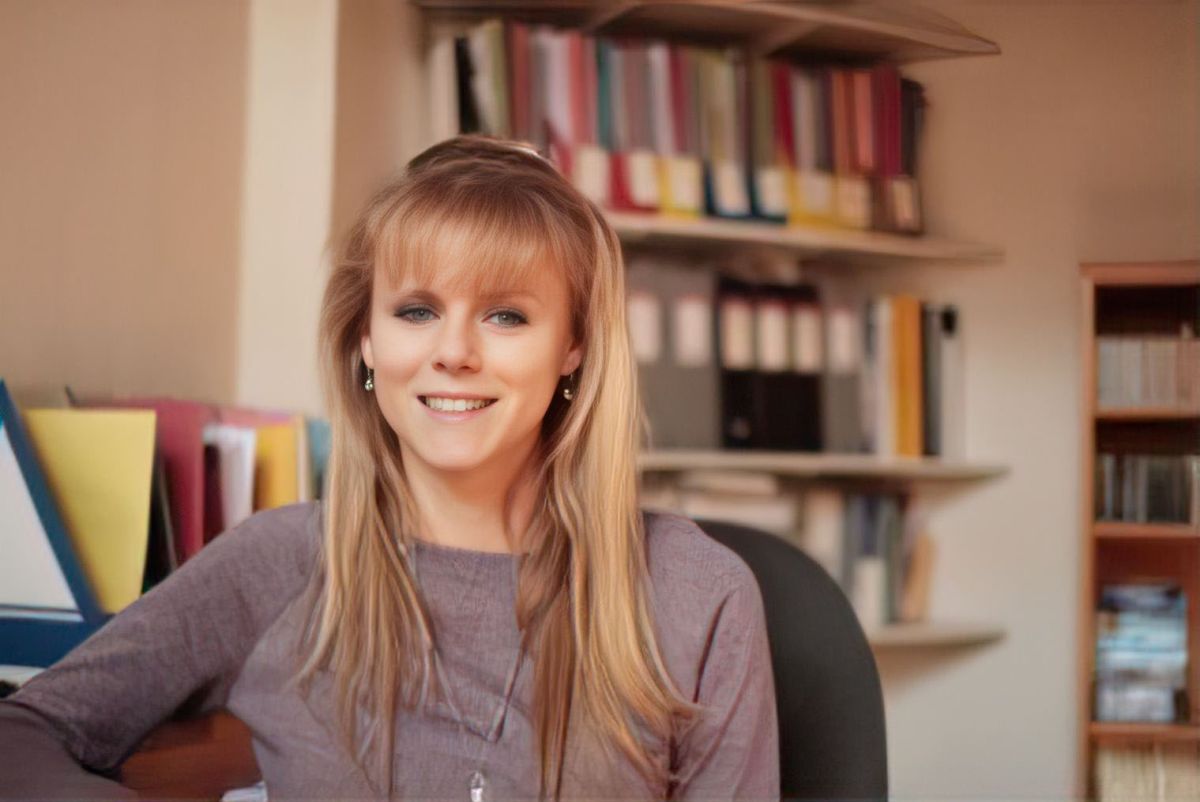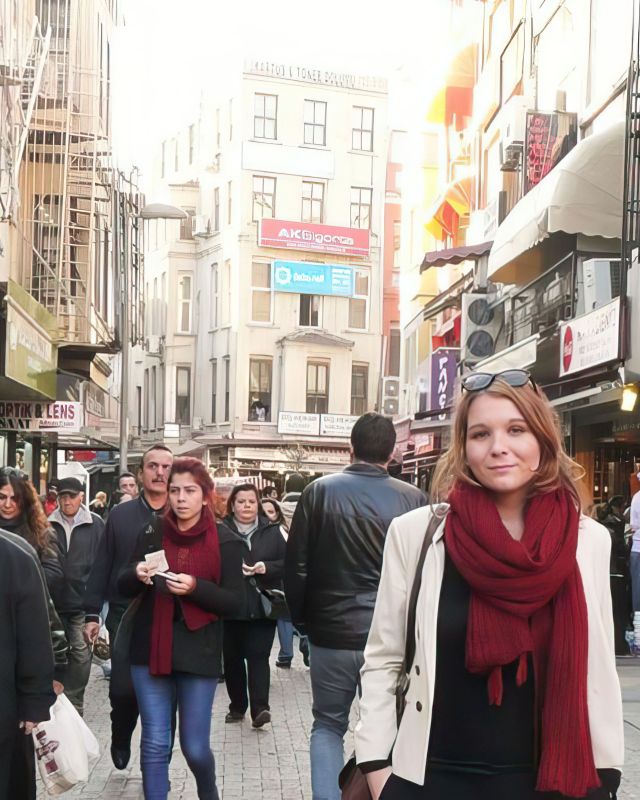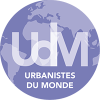Portrait

Sarah Maire, STU Class of 2013, research officer at ACADIE and pursuing a CIFRE PhD in sociology
Published on | Alumni Portraits
Portrait created by Basile on 15 February 2014
The Undergraduate College and the choice of the STU Master's Programme
Having entered Sciences Po Paris with a Bac+0, Sarah Maire studied at the Undergraduate College in a double degree programme with Paris 6 (sciences) before spending her third year in California at the University of Santa Cruz. During this year abroad, she focused mainly on urban sociology while working and getting involved in various associations.
Her choice of master's programme immediately fell on Territorial and Urban Strategies, the only one that appealed to her among the lengthy list of master's degrees offered at Sciences Po. This decision was initially motivated by her desire to act in neighbourhoods, having grown up in the suburbs, more than an hour's commute from Sciences Po. Furthermore, the social aspect and the sociology of public action have always interested her more than purely urban issues and planning.
A collective project followed by an internship with the Paris City Hall during her first year
During her first year, Sarah undertook a collective project focused on a plan to combat illiteracy among young people aged 16 to 25. This was a commission from the Delegation for Urban Policy and Integration (DPVI) of the Paris City Hall. Sarah found this work interesting, but it also made her aware of the limited scope for manoeuvre, particularly due to financial, administrative, and political blockages. She began to reflect more on her professional project and decided to apply for an unpaid month-long internship in the summer of 2012, still with the DPVI, under her former supervisor. This internship allowed her to explore several themes: youth, gender equality... and especially economic development and employment. She realised that she wished to "empower individuals in their journeys," focusing on their potential rather than their weaknesses or the discrimination they face. For her, the challenge was to "provide manuals" to populations in neighbourhoods or minorities that do not necessarily have access to such resources, while working on the system as a whole rather than on derogatory policies. Moreover, she discovered during her internship people working in consulting firms. She appreciated their role, navigating between public actors and the corporate world. She also observed the reconfiguration of public action and the proliferation of these hybrid actors in her master's programme, where she studied the delegation to external actors (agencies, consulting missions, ready-to-use reports delivered to administrations…).
The second year: deepening and refining her professional path
Sarah chose most of her second-year courses related to social issues, with already clear ideas in mind and keeping in mind not only to assist the most marginalised but also to address the overall empowerment of public policies. She then became acquainted with Philippe Estèbe, a professor in STU who also works at ACADIE. She maintained good contact with her professor, which enabled her to carry out her final internship in this firm. She does not regret this decision, despite giving up an offer from a larger firm, particularly because ACADIE's activities extend beyond consulting to include research and the scientific realm.
The second-year internship at ACADIE
ACADIE is a cooperative established in the late 1970s by activists and researchers who participated in the implementation of urban policy. Their work subsequently focused on themes of metropolitanisation and territorial development. Sarah is supervised by two internship supervisors, Philippe Estèbe and Martin Vanier, two key figures at ACADIE who do not actually have an office there as they are often solicited for external projects. The intern grows close to the study director, Stéphanie Morel, with whom she undertakes new missions in the field of education and youth support, leading to her recruitment at the end of her internship. She is ultimately hired on a permanent contract following a fixed-term contract. At this point, a new project comes to her mind: to pursue a PhD at ACADIE alongside her position as a research officer.
The PhD alongside her activities at ACADIE
Previously, Sarah had never envisioned undertaking a PhD, which for her appeared primarily as a lengthy and solitary exercise. However, upon observing the work of Nicolas Rio, who was already a PhD student at ACADIE, she discovered more positive and enriching aspects. Certainly, a CIFRE PhD can last only three years (compared to 4 or 5 years generally for social sciences), but it can be undertaken alongside consulting work, with a career progression: it enables one to gradually evolve from the status of a research officer (often considered a "junior" or "little hand," looked down upon in some firms) to the eventual role of study director (with greater scope in projects, team management, and social recognition). Furthermore, she likes the idea of being a "double agent," both a consultant and a practitioner who acts, but also a sociologist who analyses action (while respecting the principle of researcher neutrality). Sarah then decides to embark on this journey: for her PhD, she must develop a robust research project and find a PhD supervisor as well as funding. She already relies on the valuable support and assistance of her study director. Romuald Normand, a researcher at the University of Strasbourg whom she met during an evaluation mission for the National Education, agrees to supervise her PhD, the full (and complex) title of which is: "Educational Innovations and New Managerial Practices in Business: An Analysis of the Transformation of Organisational Systems and Their Impacts on the Pathways of Young Generations." Sarah then applies for CIFRE funding (Industrial Agreement for Training through Research in Companies), which can be awarded to businesses for R&D to promote the presence of doctoral students. To qualify, one must be a recent graduate for less than three years, employed for less than a year, and possess a convincing PhD project. Sarah secures this funding, which allows her to cover all her documentation, various registration, travel expenses… and grants her a part-time position for her PhD work while maintaining the same salary level. The CIFRE PhD officially begins in September 2014 (although she had been informally working on it for almost a year in her free time). Since then, she divides her time between being a study officer at ACADIE and her PhD, with each activity at part-time, without falling into a routine. She observes that for many doctoral candidates, what matters most in the PhD is the exercise that allows one to enhance or even distinguish oneself academically and pursue a career in research, rather than a passion for the subject itself. She has been fortunate enough to choose her topic, which serves as her primary source of motivation: the desire to discover new knowledge and share it. This subject concerns "Generation Y," studying the interaction between young people's aspirations and the new expectations of businesses, between the educational world and the economic sphere. She still has time before her thesis defence, but ultimately, three years is a short period. In any case, Sarah loves what she does, she has autonomy in her organisation, balancing her PhD and professional activity, and she does not get bored!
Lauranne Callet – GLM 2014 – Head of the Social Inclusion and Culture Committees at United Cities and Local Governments (UCLG-MEWA)
Published on 15 January 2016
In Situ is embarking this January 2016 on a journey to meet Lauranne Callet, who graduated in 2014 from the Master’s programme in Governing the Large…
The Greater Paris, a matter of territorial strategy
Published on 04 December 2014
This November, In Situ met with Lisa, a graduate of the Master's programme in Territorial and Urban Strategies in 2009, currently in charge of International…
 English
English  Français
Français 




